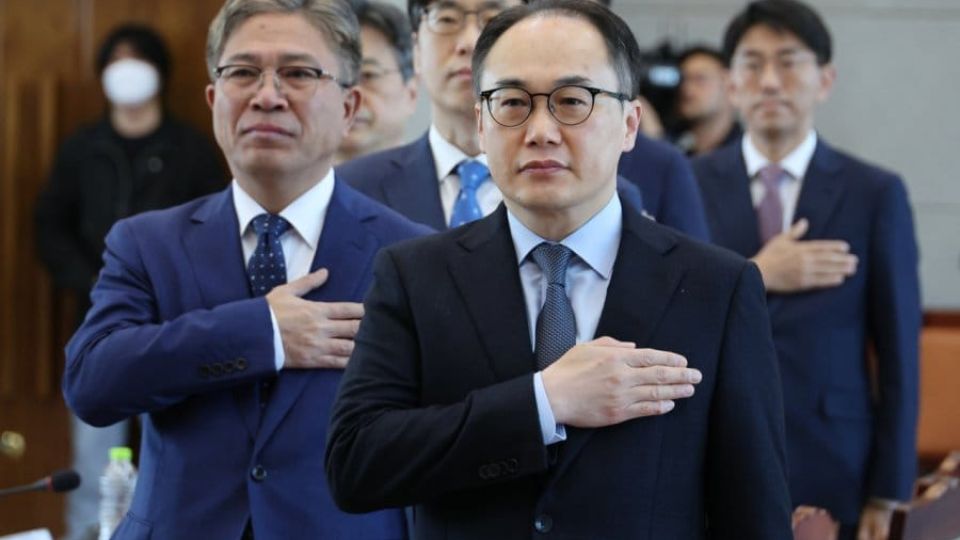May 9, 2023
SEOUL – South Korea’s top prosecutor on Monday pledged to stamp out drug-related crimes as Seoul seeks to impose increase capital punishment sentences for drug offenders who target minors
The prosecution’s proposal will be tabled at the Sentencing Commission of the Supreme Court of Korea in June, according to the commission dedicated to sentencing guidelines on Monday. If approved, the death sentence or life imprisonment could be imposed on a greater number of offenders who are convicted for supplying illegal drugs to or doing drugs with children and adolescents, as well as those who involved minors in drug trading.
Under the current law, such offenders are subject to at least five years in prison and repeat offenders can face the death penalty. The new sentencing guidelines, however, could impose harsher punishments on more offenders and have more offenders detained while on trial.
This will be part of the prosecution’s fight to uproot drug crimes, especially those targeting children and adolescents, according to the prosecution chief.
Without immediate action to address the upsurge in drug crimes, the situation would become “irreversible,” Lee One-seok, prosecutor general of the Supreme Prosecutors’ Office, said in a meeting with 26 high-ranking prosecutors from 18 offices across the nation. The meeting at Supreme Prosecutors’ Office headquarters in Seoul was designed to seek concerted efforts to fight the surging drug abuse especially among the young generation.
Prosecutors are engaged in an uphill battle against drug crimes, he added, directing the blame at the former liberal President Moon Jae-in administration that moved to undermine prosecutors’ power to probe drug crimes.
“At the investigative front, we see more cases where we determine the eligibility of the drug crime investigation by the weight and value of confiscated drugs in a ridiculous fashion,” Lee said.
He cited the laws in 2021 to ban the prosecutors from probing into drug crimes involving illicit drugs that are less valuable than 5 million won ($3,790). The growing disparity in illegal drug prices paid by smugglers and final consumers is aggravating the situation, he also said.
Moreover, the leniency in sentencing drug offenders has been seen as a main culprit behind the surge in drug crimes. According to data in April by the Supreme Court, less than half of the 5,468 district court rulings on drug offenders in 2021 ended up with jail sentences, as the proportion has been on a gradual decline in the past three years.
This forced the prosecution service to seek a breakthrough with its nationwide reorganization. In the late 1980s, a restructuring of the prosecution helped Korea transition from an illicit drug-producing country to a drug-free country in the 1990s. The prosecution has earlier pledged to revive a drug crime investigation unit by separating it from the anti-corruption division by as early as the end of May, retracting the decision during the Moon administration.
“We have a history of triumph against the drug crimes, so there is no doubt we could do so again,” Lee said, quoting Adm. Yi Sun-shin, “If one person keeps to the path, it is enough to scare thousands of people.”
This comes as the number of drug offenders rose over 30 percent in five years to 18,395 in 2022. The number of those aged 19 or younger rose fourfold to 481 over the cited period.
Separately, the Justice Ministry, the Education Ministry and the Family Ministry have joined forces in holding over 300 lectures in classrooms from March 20 until Thursday. More than 1,000 such lectures are to take place until the end of this year. The lectures are part of the Yoon Suk Yeol administration’s drug awareness campaign to help the young generation steer clear of illegal drugs, the Justice Ministry said Monday.


